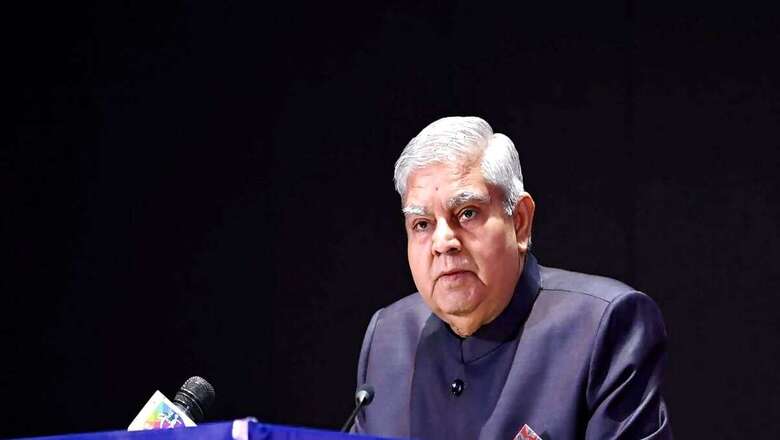
views
The Bhartiya Janta Party (BJP) recently notified the rules to implement the Citizenship Amendment Act (CAA). The CAA was an integral part of the BJP’s manifesto for the 2019 Lok Sabha elections. Union Home Minister Amit Shah had last month said that the CAA would be implemented before the polls.
Reiterating the party’s call for CAA, Vice President Jagdeep Dhankhar while delivering a keynote address said, “The Citizenship Amendment Act is a reprieve for the persecuted”, adding that the country is known for harboring persecuted communities for centuries.
At the event organised by NDTV, Dhankhar also said that India is no longer a ‘sleeping giant’ but on the ‘cusp of immense possibilities’ with an obvious peacemaker for global harmony.
CAA: ALL YOU NEED TO KNOW
What is the Citizenship Amendment Act (CAA)?
The law does not deprive anyone of citizenship nor does it grant citizenship to anyone. It merely modifies the category of people who can apply (for citizenship). It does this by exempting the applicants from the definition of “illegal migrant” – any person who belongs to the Hindu, Sikh, Buddhist, Jain, Parsi, or Christian community and is from Afghanistan, Bangladesh, or Pakistan, who has entered India on or before the 31st day of December 2014, and who has been exempted by the Central Government or the Foreigners Act, under clause (c) of sub-section (2) of section 3 of the Passport (Entry into India) Act, 1920, or the provisions of 1946 or under any rule.
The legal framework for this exemption is found in two notifications issued by the Ministry of Home Affairs in 2015.
In effect, this notification exempts only those Hindus, Sikhs, Buddhists, Jains, Parsis, or Christians, from Afghanistan, Bangladesh, or Pakistan, who have come to India before December 31, 2014, due to fear of religious persecution.
What does the citizenship law do?
This law does not automatically give them citizenship, it just makes them eligible to apply for it. They will have to show that they have lived in India for five years. They will have to prove that they have come to India before December 31, 2014. It has to be proved that they have fled from their countries due to religious persecution. They speak languages from the Eighth Schedule of the Constitution and fulfill the requirements of the Third Schedule of the Civil Code 1955. Through this, they will be eligible to apply. After that, it will be up to the Government of India whether it grants them citizenship or not.




















Comments
0 comment